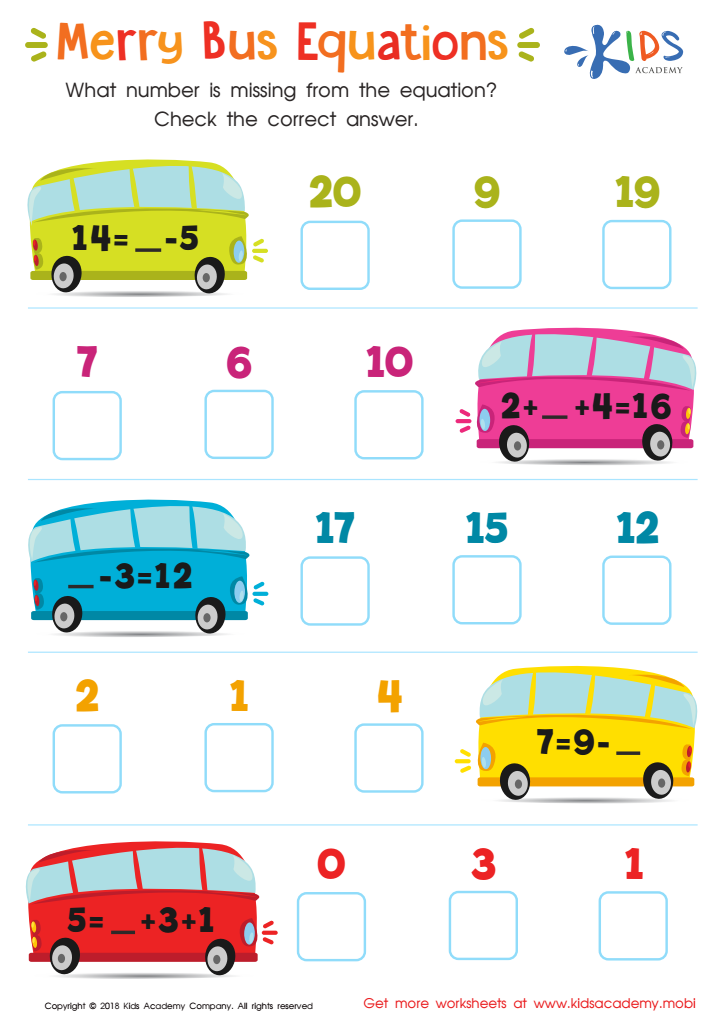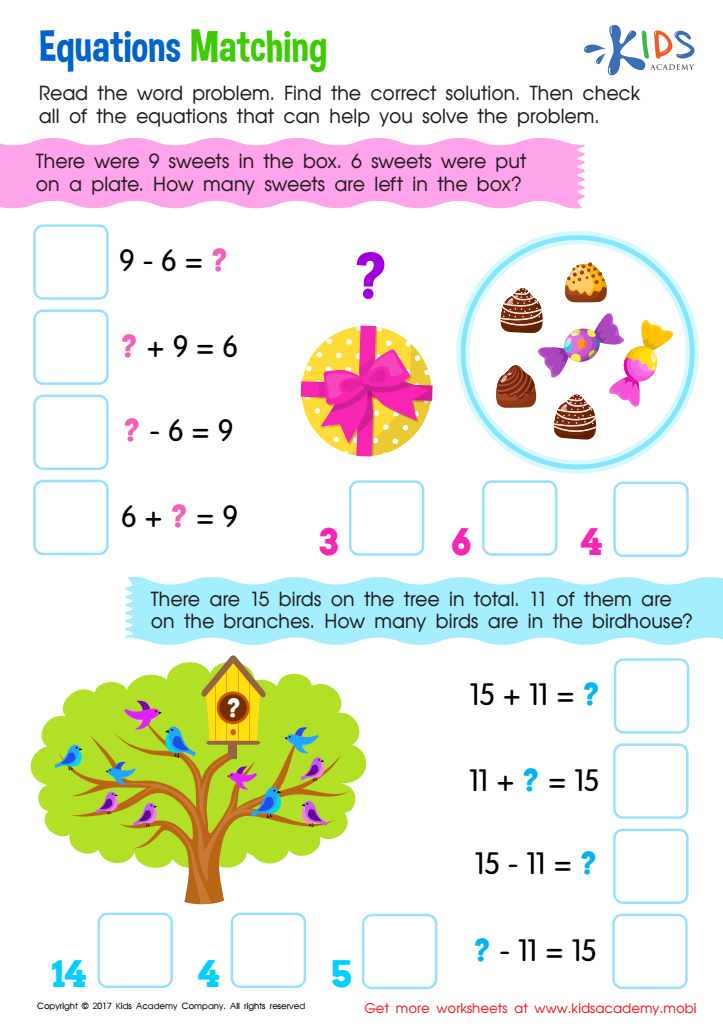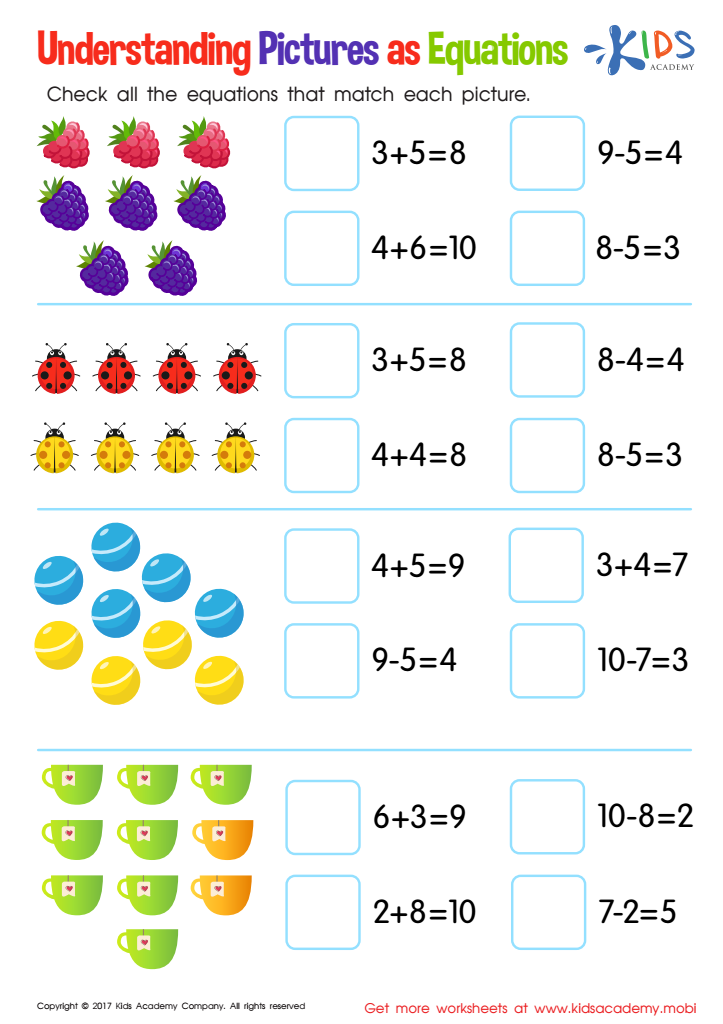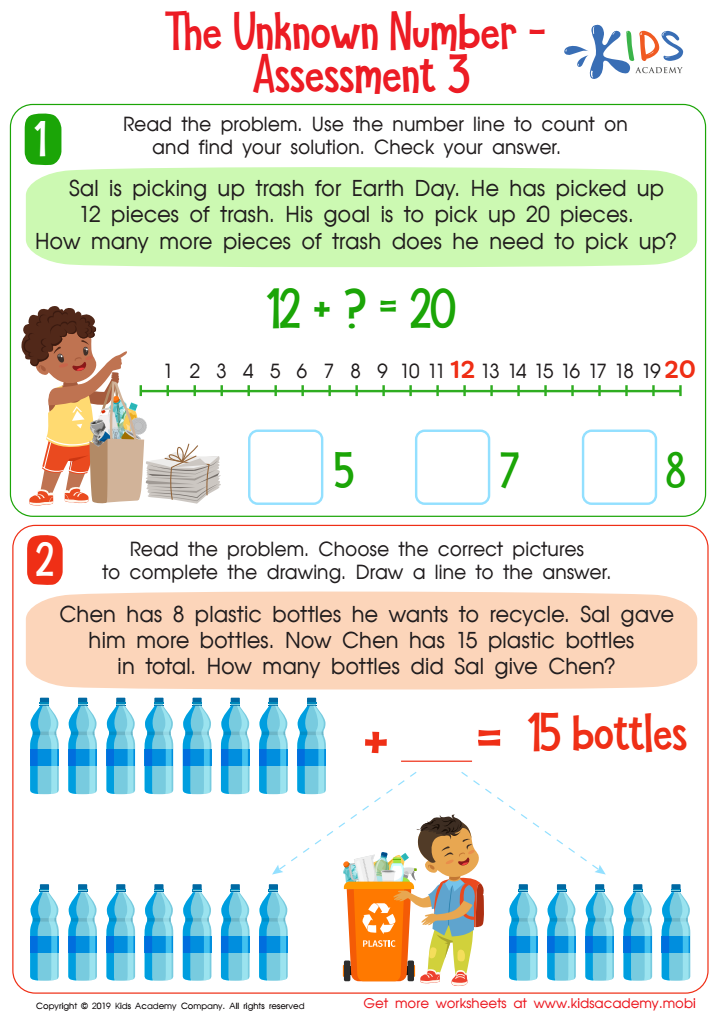Understanding equations Math Worksheets for Ages 3-8
7 filtered results
-
From - To
Discover the joy of learning with our "Understanding Equations" math worksheets designed for children ages 3-8. These engaging resources introduce essential math concepts in a fun, interactive way, helping young learners explore equations through colorful visuals and relatable scenarios. Each worksheet focuses on building foundational skills, boosting confidence in problem-solving, and fostering a love for mathematics. Perfect for both classroom and at-home learning, our worksheets cater to diverse learning styles, ensuring every child feels successful. Explore the exciting world of equations today and empower your child with crucial math skills that will last a lifetime!


Merry Bus Equations Worksheet


Equations Matching Word Problems Worksheet


Understanding Pictures as Equations Worksheet


The Unknown Number - Assessment 3 Worksheet
Understanding equations in early mathematics is crucial for children aged 3-8, as it lays a solid foundation for future learning. At this age, children are naturally curious and eager to explore mathematical concepts, making it an ideal time to introduce basic principles of equations. Engaging with equations helps young learners develop critical thinking and problem-solving skills. It fosters logical reasoning and encourages them to approach problems methodically—abilities that are essential not only in math but throughout their academic journey.
Moreover, grasping the concept of equations enhances a child's understanding of relationships between numbers and quantities. For instance, learning about simple addition or subtraction equations allows them to see the connection between quantities, which is foundational for more complex mathematical concepts later on.
Furthermore, early exposure cultivates a positive attitude toward mathematics—often termed "math anxiety" can be alleviated when children feel confident in their skills. Parents and educators can create a supportive environment that encourages exploration through engaging activities and games, making math enjoyable and accessible. Investing in a child's early mathematical understanding ensures they build a solid framework that will support their learning and confidence in school and beyond.
 Assign to My Students
Assign to My Students


















